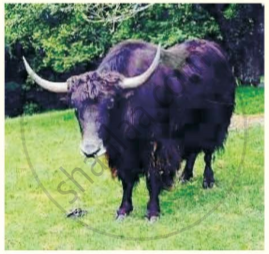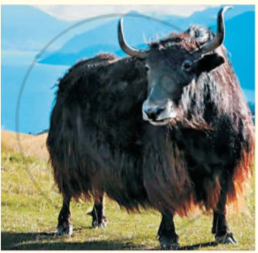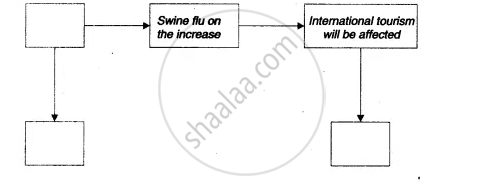Advertisements
Advertisements
प्रश्न
Answer the following question briefly.
Does the speaker seem happy about his decision?
उत्तर
The speaker doesn’t seem to be happy about his decision. Whether the choice is right or wrong can’t be decided on the spur of the moment. Only after ‘ages and ages’ he will realise the mistake that he made years ago. He will be ‘telling with a sigh’ to others that it was not a wise decision. Two roads diverged in a wood and he ‘took the one less travelled by’. The roads are fascinating metaphors for life. The choice has made all the difference in his life.
APPEARS IN
संबंधित प्रश्न
On the basis of your understanding of the poem, answer the following questions
by ticking the correct choice.
The poet writes, 'Two roads diverged in a yellow wood.' The word diverged means
_______________.
Answer the following question briefly.
The poet says “I took the one less travelled by, And that has made all the difference.” What is ‘the difference’ that the poet mentions?
Complete the following paragraph about the theme of the play using the clues given in the box below. Remember that there are more clues given than required.
sell, buying, house, enthusiastic, comes, 200 thousand francs, taking, favour, get, sleeps, money, 300 thousand francs, unhappy, in-laws, walks in strikes, keep
Juliette, the owner of a Villa wants to ____________ it as she is in need of _____________. Moreover, she is not in _____________ of the house. Jeanne and Gaston, a couple visit her with the aim of _____________ the Villa. While Jeanne is __________ about buying, Gaston detests the idea as he does not want his
___________ in that house. Also, he finds the asking price of ____________ to be expensive. When Jeanne and Juliette go around the house, another customer ____________and starts talking to Gaston ___________him to be Juliette's husband. Gaston ____________ a deal with the customer by which he is able to give ____________ to the owner and _______________ one thousand francs for himself.
Identify the situations which can be termed as the turning points in the convict's
life?
Imagine that you are conducting a research on the conservation of a few animal species in India. You have been asked by the Wildlife Trust of India to prepare a report on the future of the YAK that lives in the Ladakh region of the Himalayan mountains . In groups of four, discuss the issue and make notes for your report. Refer to the Question 2 and the information in the box given here.

| DOMESTIC YAK |
| herd animals 2-2.2 m tall |
| used in sports |
| kept for milk , fur , fibre , meat , drawing ploughs etc |

| WILD YAK |
| length:3-3. 4m |
|
habitat: treeless uplands
|
| killed for food |
| insulated from cold by dense, close matted under hair , shaggy outer hair |
| hunted for similar reasons as the domestic ones |
Within your group, discuss
• What is the problem? How has it arisen?
• What is the best way to preserve these species?
• Why do we need to preserve these species?
• What values need to be inculcated in the hearts of human beings? Why?
• What actions would you recommend to the World Wildlife Federation?
• How is global warming affecting these species?
Look at the following pair of sentences. Underline the modals and discuss why each one is used in that sentence.
e.g.
I must not take those pills. (I’m not allowed.)
I need not take those pills. (It is not compulsory but I may if I wish.)
(b) I needn’t go to the meeting if I don’t wish to.
2. (a) I can swim a length of the pool.
(b) I can swim in the pool on Saturdays.
3. (a) You ought to get a nice present for her.
(b) You have to get a nice present for her.
4. (a) Can I go to the toilet?
(b) May I be excused?
5. (a) I may come tomorrow if I have the time.
(b) I might come tomorrow but it’s going to be difficult.
Did you know?
Modals are a small group of verbs that are used to express possibility,
probability, capability, capacity, ability, obligation and predictions.
Some of the modals you learnt in this unit are
can
may
shall
could
might
should
Need, dare, had better are also modals.
Understanding Modals:
Modal Auxiliaries
A modal verb or auxiliary verb is a verb, which modifies another verb, so that
the modified verb has more intention in its expression. In essence the modal
verb expresses modality, the way in which something is being said.
The main modals are
Can: could; may: might; shall: should; will: would: must; ought to; need to;
have to.
The negative modals are
Couldn't; wouldn't; shouldn't; mustn't; needn't; oughtn't/ ought not to
| Modal | Examples | Uses |
| Can/ can't |
She can read and write It can rain today Can I borrow your pen? Can you lend me your notes? Can I carry your books? |
ability possibility /probability seeking permission request offer |
| Could/ couldn't |
Could I borrow your book? Could you please help me with this sum? We could go for a picnic on Sunday I think you could come first this time There was a time when I could work round the clock. |
seeking permission request suggestion possibility/ probability past ability |
| May |
May I have some water? May I help you? May I shut the door? India may become a super power by 2020. May God bless you |
request offer permission possibility/ probability wish/ desire |
| Might | They might sell their house as they need the money. | future possibility/ probability |
| Will /Won't |
It is very cold so I will stay at home. I will help you if you wish. Will you look after my dog for a day? It will rain tonight. I will get you a shawl from Srinagar. |
intention offer request prediction promise |
| Would/Wouldn't |
Would you mind if I come over tonight? Would five o'clock suit you? Yes it would. Would you pass the salt? Would you come to my party? Would you prefer tea or coffee? |
permission making arrangements request invitation preference
|
| Shall |
Shall I help you? Shall we meet at 3.00 pm outside Bakshi Stadium? |
offer making arrangements |
| Should |
We should check the timings of the train. You should listen to the advice of your elders. |
recommended action advice |
| Ought to |
You ought to do your duty. The bus ought to be here any minute |
advice probability |
| Must/mustn't |
We must make a move now. You mustn't tell lies. |
obligation necessity |
| Need |
He need not go to the market. You need to lose weight. I need to get the groceries. |
necessity compulsion insistence |
Can you make some guesses about the dead man? Give reasons for your answers.
a) Did the man die a natural death or was he murdered?
b) Was the dead man rich or poor?
c) Who is the man bending over him?
Prevention is better than cure.
Swine flu has been declared (as) a pandemic.
In groups of four discuss the following.
(a) What has been done by the authorities to cope with the problem?
(b) What are the consequences of such a major world-wide infection?
Write out the answer to the questions as a flowchart using the passive form of the verb.
Impressed by your performance on Sports Day, the Chief Guest (an omcial of the Sports Club of India) decides to offer you a sports scholarship. Write an email to a friend about your performance and the scholarship offered.
Group the prepositions in the box below to indicate their use as prepositions of place (P), movement (M) or time (T). There may be more than one category for each.
| between ________ along ________ since ________ up ________ among ________ in front of ________ after ________ |
past ________ on ________ behind ________ round ________ for ________ across ________ through ________ |
before ________ until ________ beside ________ out of ________ at ________ under ________ during ________ |
